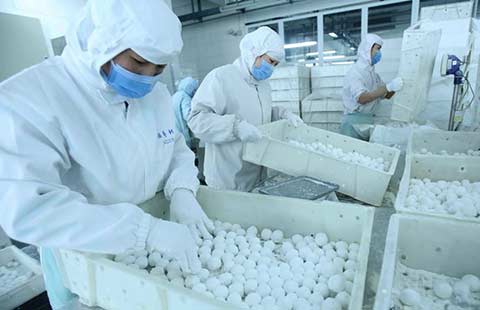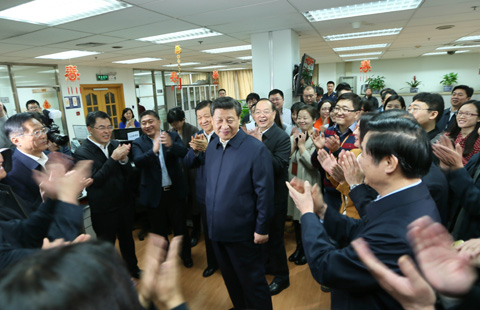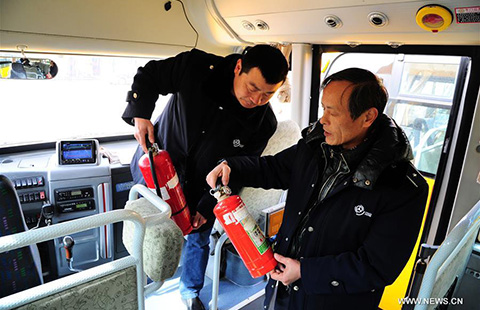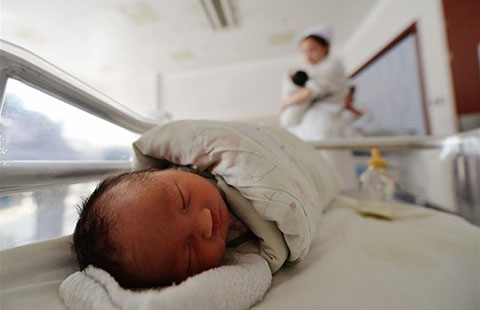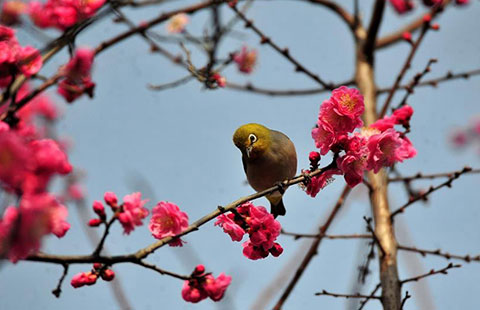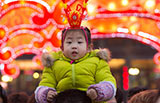

VLADIVOSTOK - Chinese President Hu Jintao announced here Saturday that China would host the Asia-Pacific Economic Cooperation (APEC) economic leaders' meeting and related meetings in 2014.
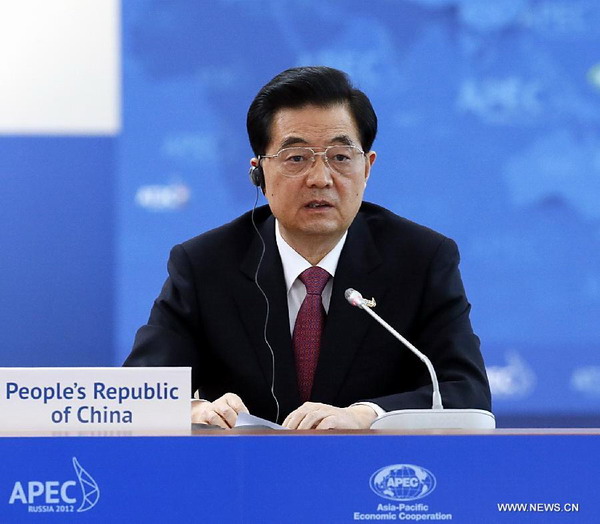 |
|
Chinese President Hu Jintao speaks at the 20th APEC Economic Leaders' Meeting in Vladivostok, east Russia, Sept 8, 2012. [Photo/Xinhua] |
"China wishes to take this as an opportunity to deepen cooperation with other APEC members and make fresh and even greater contributions to the development, prosperity and people's well-being in the Asia-Pacific region and beyond," he said.
President Hu made the announcement during a speech at the 20th informal economic leaders' meeting of the APEC forum, which opened in this Russian Far Eastern port city Saturday.
The APEC economic leaders' meeting, which runs Saturday and Sunday, is focused on the theme of "Integrate to Grow, Innovate to Prosper." Russian President Vladimir Putin presided over the meeting.
Hu, in his speech, emphasized China had always placed high importance on the role of APEC and actively participated in its cooperation in various fields and at different levels.
"China has made positive contributions to the growth of APEC," Hu said.
In a review of APEC's development over the past two decades, Hu said APEC had grown into an "important force" both in terms of global economic governance and regional cooperation. He called for APEC member economies to take stock of APEC's achievements and experience, boost confidence, strive for new progress and reach new heights in regional economic cooperation.
In his speech, Hu elaborated on China's propositions on major topics discussed at Saturday's meeting, including trade and investment liberalization, integration of the regional economy and establishment of reliable supply chains.
On the issue of trade and investment liberalization and regional economic integration, Hu said APEC member economies should push forward trade and investment liberalization and facilitation with the Bogor Goals at its core by "properly dealing with the relations between new topics and realization of the Bogor Goals."
He emphasized that development levels and specific conditions of individual member economies should be taken into account as they advanced the process of environmental goods liberalization.
He also called for greater efforts to disseminate environmental technologies, enhance capacity building and help developing economies to raise capacity in environmental industries and sustainable growth.
China supported the designation of "transparency of a free trade treaty" as this year's "next-generation" trade and investment topic, Hu said.
He said the APEC members should actively explore new thoughts of regional economic integration and advance the development of an Asia-Pacific free trade zone in an orderly and incremental way.
On the issue of establishing reliable supply chains, Hu said APEC member economies should scale up investment in infrastructure development, enhance connectivity and network development in the region and reduce the time and cost of commodity flows. He called for the economies to enhance risk management and disaster resilience of supply chains in the region.
"We need to create a sound policy environment and encourage the business community to get actively involved in the development of supply chains," Hu said.
Later on Saturday, Hu attended a dialogue session with members of the APEC Business Advisory Council (ABAC). At the meeting, Hu and other economic leaders exchanged views with ABAC members on pushing forward the Doha Round negotiations, deepening regional economic integration, strengthening supply chain connectivity, enhancing food security, promoting growth of small- and medium-sized enterprises and stepping up cooperation on innovative growth.

